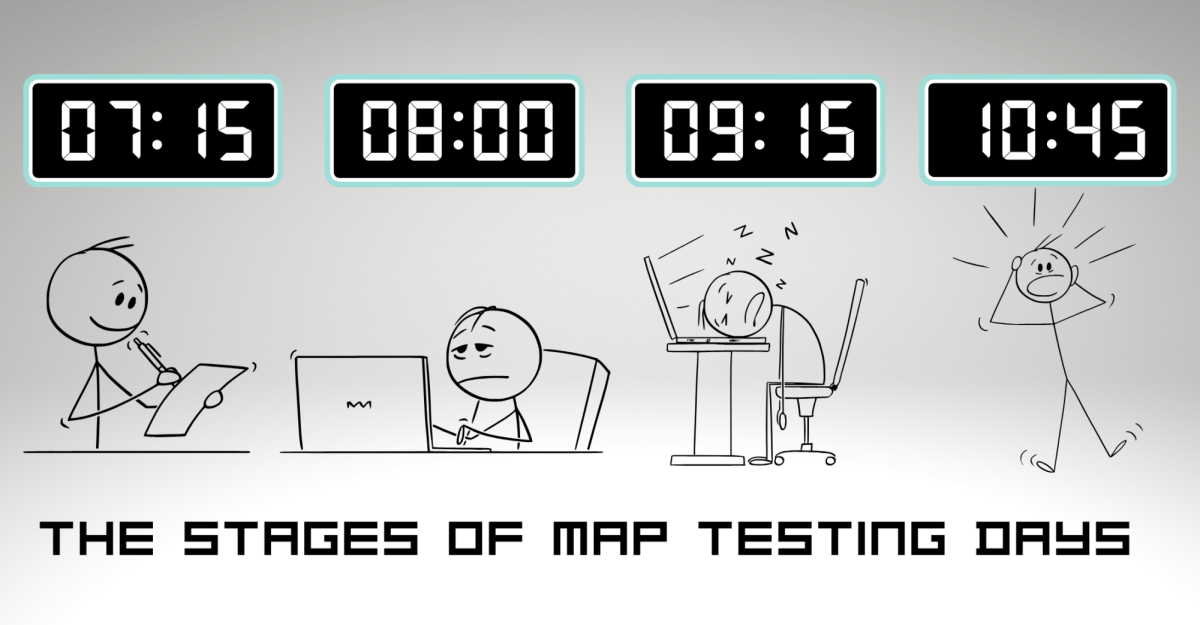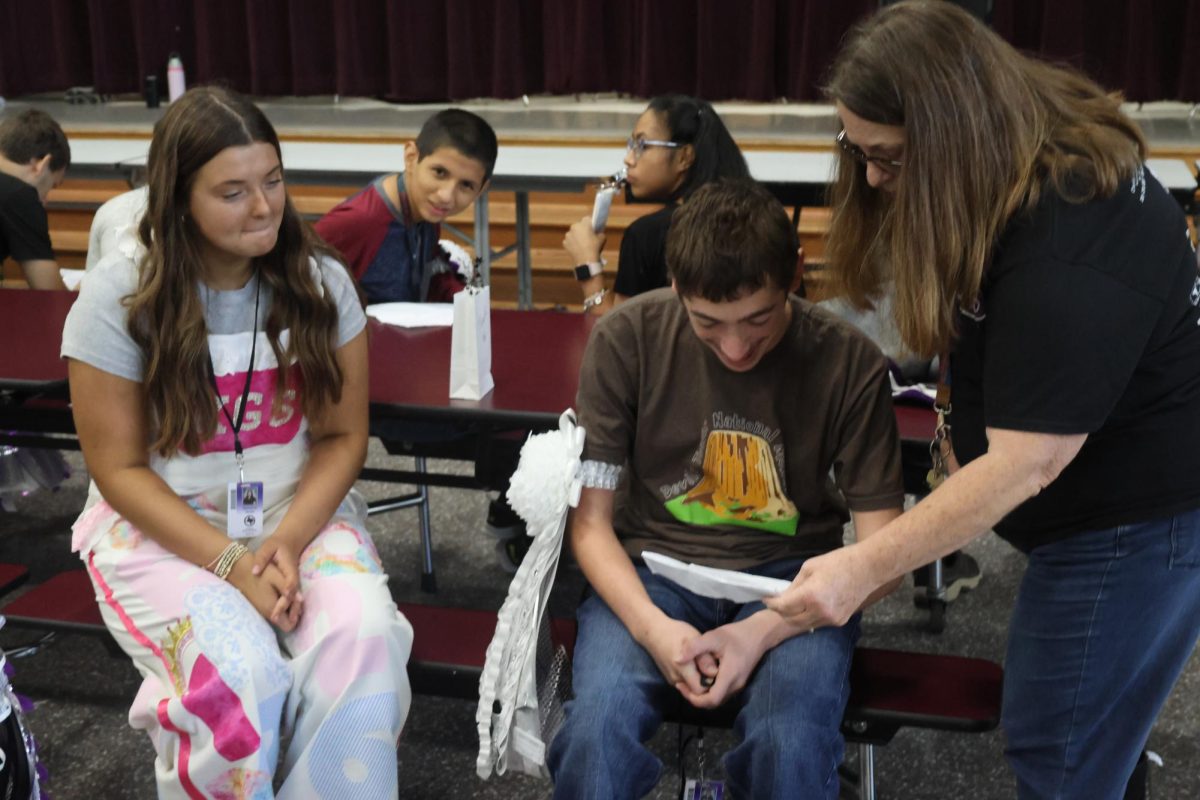This year’s MAPS testing schedule has created an unintended disruption in the school day, forcing students who weren’t testing to spend five out of eight periods confined to a single room, rather than attending their regular classes. This leaves students uninformed about class work that’s assigned, it causes difficulty in learning without having proper assistance, and many other problems for staff as well. Instead of fostering a productive learning environment, this approach encourages skipping school and laziness. It’s time to reconsider the impact of this schedule on students’ education and overall school experience.
The main issue here is that students not involved in testing lose valuable instructional time. When in these testing rooms all the students get proctors that can be any kind of staff member in the building, but they most likely won’t get one of their actual teachers. When stuck in a single classroom with a proctor supervising, they miss out on direct teaching and the opportunity to stay engaged with the curriculum. Many students struggle to stay motivated when in such a boring room for four hours, resulting in wasted time and falling behind academically. This leads to an abundance of absences due to students being less encouraged to go to school.
Moreover, teachers are also negatively affected by this arrangement. Those not administering the test must supervise large groups of idle students, taking their attention away from lesson planning and individualized support. This not only adds stress but takes away the overall quality of instruction in the school.
One possible solution is to make one side of the building exclusively for testing and relocate teachers’ rooms who don’t have their students testing. This allows non-testing students to attend their normal classes uninterrupted. This also takes away the encouragement of skipping school because students see it as a normal day; if they miss school, they miss classes and learning.
Ultimately, schools must prioritize instructional time and student engagement. While standardized tests serve an important role in measuring academic progress, they should not cause less regular learning opportunities. If the schools truly wants to support our students’ success, the current MAPS testing schedule must be looked over and improved. Our school community deserves a system that strives for growth, encourages responsibility and values every minute of the school day.















